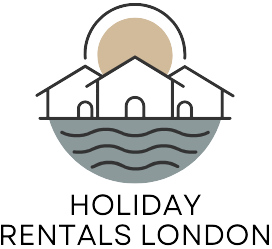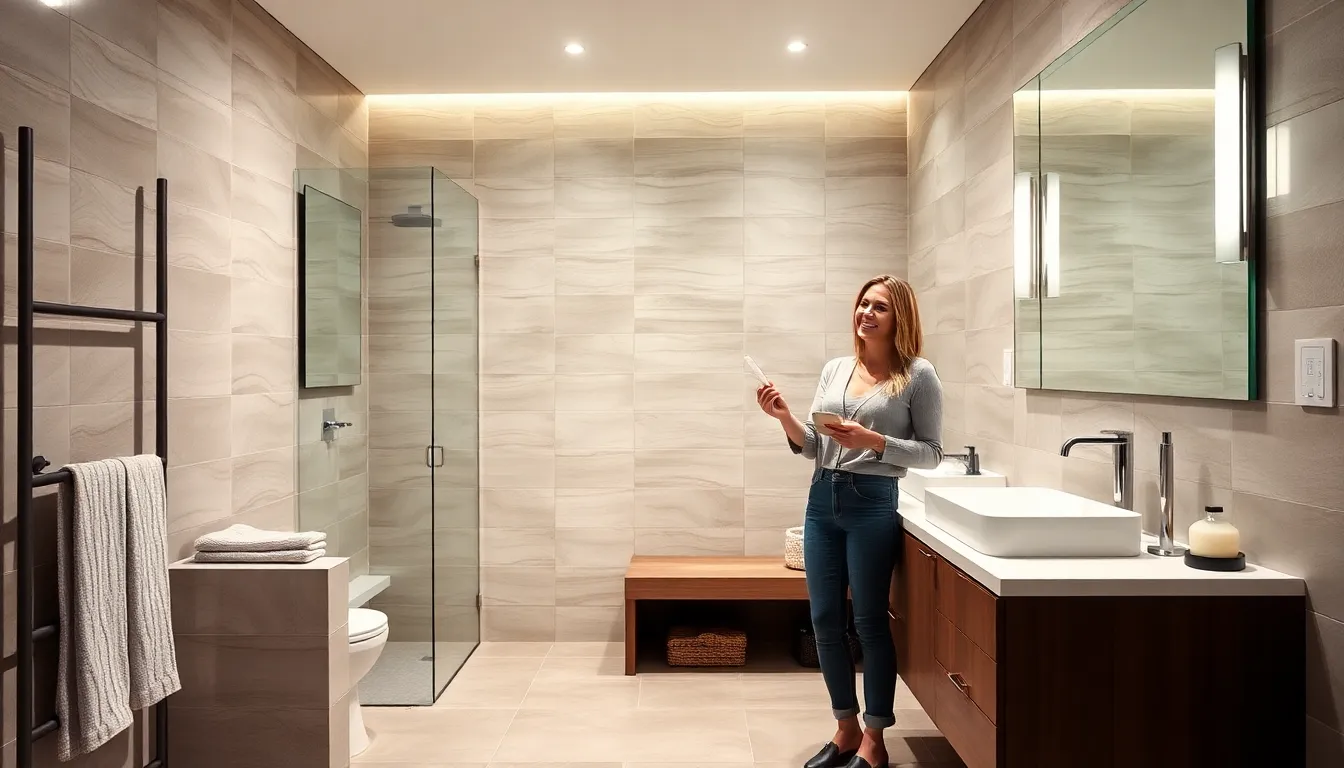In the wild, wild West of Nevada, where the sun shines brighter than a gambler’s smile, protecting your home is no small matter. Home insurance isn’t just a safety net; it’s your trusty sidekick in the unpredictable adventure of life. With everything from flashy casinos to enchanting desert landscapes, homeowners need coverage that’s as tough as a cowboy and as reliable as a trusty steed.
Imagine this: you’ve just settled into your dream home, only to discover that a sudden dust storm has decided to throw a party on your roof. That’s where home insurance swoops in like a superhero, saving the day and your wallet. So, let’s dive into the essentials of home insurance in Nevada and discover how it can shield your castle from the unexpected twists and turns of desert living.
Table of Contents
ToggleOverview of Home Insurance in Nevada
Home insurance provides essential protection for homeowners in Nevada. This coverage addresses unique challenges, including dust storms and extreme temperatures. Various policy options exist, allowing flexibility in coverage based on individual needs and local risks.
Standard policies typically include protection against fire, theft, and vandalism. Moreover, homeowners can opt for additional coverage, such as flood insurance, due to Nevada’s varying climate and potential natural disasters. Understanding policy limits and deductibles matters since these factors influence out-of-pocket expenses during a claim.
According to the National Association of Insurance Commissioners, the average annual premium for home insurance in Nevada is around $1,000. Various providers offer competitive rates, encouraging homeowners to shop around for the best deal. Comparing quotes helps ensure homeowners receive adequate coverage at an affordable price.
Additionally, some communities within Nevada may have special requirements, reflecting local risks. Homeowners in high-risk areas may need specific endorsements, focusing on earthquake or wildfire coverage. Maintaining an updated inventory of personal belongings simplifies the claims process for any covered loss.
Finding a reputable insurance agent helps clarify options and navigate policy details. Experienced agents provide valuable guidance, ensuring homeowners choose appropriate coverage. Understanding local regulations and requirements can further enhance the insurance selection process. Prioritizing adequate home insurance protects financial investment and provides peace of mind in an unpredictable environment.
Types of Home Insurance Policies

Homeowners in Nevada can choose from various insurance policies tailored to meet their specific needs. Understanding these options streamlines the selection process and ensures adequate protection.
Standard Homeowners Insurance
Standard homeowners insurance, often referred to as HO-3, covers personal property and the physical structure of a home against common perils such as fire, theft, and vandalism. This policy also includes liability protection, which safeguards homeowners from legal claims resulting from injuries on their property. Coverage limits typically align with the home’s market value, necessitating regular assessments to ensure sufficient protection. Homeowners should familiarize themselves with the policy’s exclusions, often including natural disasters like floods or earthquakes.
Renters Insurance
Renters insurance provides essential coverage for tenants protecting their personal belongings from theft, fire, and other risks. Liability coverage in renters policies protects against claims from injuries or property damage caused by the tenant. Affordable premiums typically make renters insurance a wise choice, with costs averaging around $200 annually. Many landlords require proof of renters insurance, making it not only beneficial for personal security but often a necessity for lease agreements.
Condo Insurance
Condo insurance addresses the unique needs of condo owners, offering personal property coverage and liability protection similar to standard homeowners insurance. Individual units typically require additional coverage to protect against potential shortfalls in the building’s master policy. Features of condo insurance include protections for loss of use expenses, which cover additional living costs during repairs. Understanding the condominium association’s insurance policy helps owners identify coverage gaps and tailor their insurance accordingly.
Key Factors Affecting Home Insurance Rates
Home insurance rates in Nevada are influenced by several key factors. These elements vary significantly between individual homeowners based on unique circumstances.
Location and Environment
Location plays a critical role in determining home insurance rates. Regions prone to natural disasters, such as wildfires or flooding, often see higher premiums. Specific neighborhoods may face additional risks, such as increased crime rates, leading to elevated rates. Areas with favorable weather conditions tend to enjoy lower premiums. Insurers evaluate local environmental conditions by examining geographic risks. For instance, homes situated in flood zones may require additional flood insurance, further affecting overall costs.
Home Features and Age
Home features heavily influence insurance rates. Characteristics like square footage, style, and building materials affect vulnerability to damage. Older homes may attract higher premiums due to outdated electrical systems or plumbing. Insurers typically assess the condition of a home, impacting coverage options. Updated features, such as a new roof or modern security systems, can lead to discounts, reducing premiums. Homeowners should provide accurate details about their properties to ensure the best coverage at the lowest rates.
Top Home Insurance Providers in Nevada
Several providers stand out in Nevada’s home insurance market, each offering unique coverage options to meet homeowners’ diverse needs.
Provider Comparisons
State Farm ranks high with competitive rates and a solid range of policy options that include replacement cost coverage. Allstate is another popular choice, known for its user-friendly digital tools and extensive discounts for bundling policies. Travelers offers personalized service and flexible coverage features. Liberty Mutual stands out with unique policy add-ons for natural disaster risks, including coverage for dust storms. Chubb appeals to high-value homeowners, providing exceptional coverage options and superior customer service. Each provider presents strengths, ensuring a good fit for varying preferences and circumstances.
Customer Reviews and Ratings
Consumers frequently share experiences about home insurance providers in Nevada, influencing decisions. State Farm often receives praise for its responsive customer service and claims handling. Allstate’s comprehensive online platform garners positive feedback, especially among tech-savvy users. Travelers typically earns high marks for its prompt claim processing and supportive agents. Liberty Mutual attracts clients with its customizable coverage, receiving favorable reviews for adapting to individual needs. Chubb maintains a strong reputation among those needing extensive property coverage, often noted for its excellent risk management resources. Ratings provide valuable insight into customer satisfaction, helping homeowners make informed choices.
Tips for Finding the Right Home Insurance
Finding the right home insurance involves careful consideration of various factors. Homeowners in Nevada should start by identifying specific coverage needs.
Assessing Coverage Needs
Coverage needs depend on individual circumstances and property characteristics. Homeowners should evaluate the value of their property and personal belongings. High-value items might require additional coverage options, ensuring adequate protection. Additionally, understanding unique risks in Nevada, like floods or wildfires, is crucial. Reviewing local disaster history can help determine necessary endorsements. Personal liability coverage is another essential aspect, safeguarding against potential lawsuits. Assessing these elements allows for a tailored policy that fits risks and financial situations.
Understanding Policy Exclusions
Policy exclusions detail what is not covered under typical home insurance policies. Homeowners must read these exclusions carefully to avoid surprises during claims. Common exclusions may include damage from earthquakes or lack of maintenance, which are often critical to know. Knowing specific limitations helps determine whether extra coverage is necessary. Homeowners could consider additional endorsements for risks prevalent in their areas. Factoring these exclusions into decision-making ensures comprehensive protection against unexpected events. Understanding what a policy covers and excludes ultimately aids in selecting the right insurance plan.
Home insurance in Nevada is an essential safeguard for homeowners navigating the state’s unique challenges. With the right policy, they can protect their investments against unexpected events like dust storms and wildfires. Understanding the various options available allows homeowners to choose coverage that aligns with their specific needs and risks.
By comparing quotes and working with reputable insurance agents, homeowners can secure affordable rates while ensuring adequate protection. Staying informed about policy details and local regulations further enhances their ability to make sound decisions. Ultimately, investing in home insurance provides peace of mind, knowing that their homes and belongings are well-protected against life’s uncertainties.




